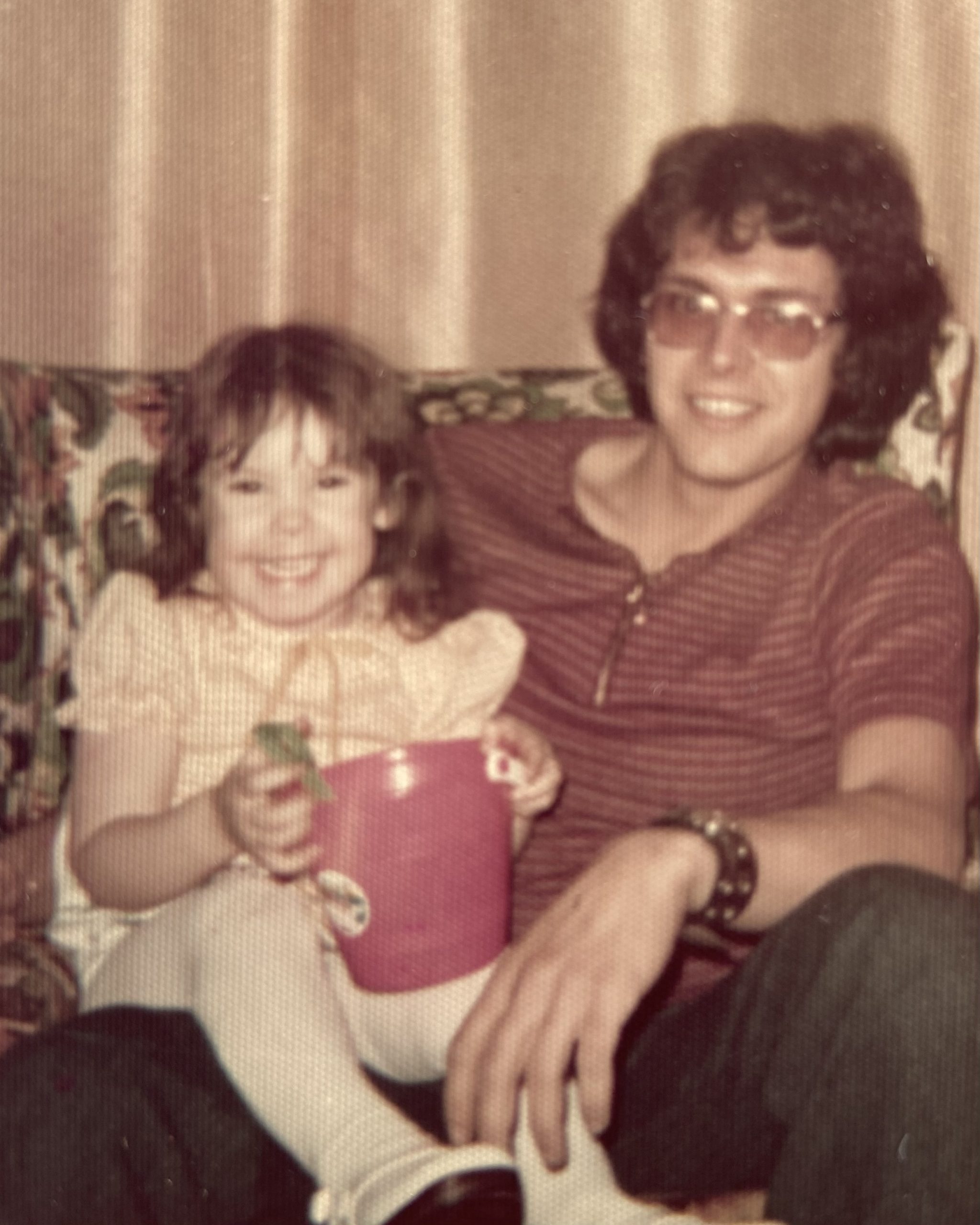What Do I Do When My Loved One Forgets Who I Am?

Today I want to start with something a little more personal…you may know that I host a podcast called Desperately Seeking Senior Living. On that podcast I’ve decided to change my hostname. So what’s in a name? A Lot…there’s so much that I would give anything to have had the technology we have today where I could keep a recording of my dad leaving me a message… calling me the way he usually did by my first and middle name. My dad died in 2007 . He had alcohol related dementia and there was a point in his disease where he didn’t know who I was and that was pretty scary and to this day I can still hear his strong deep voice saying Valerie Lynn. So for him…I’ve decided to go by Valerie Lynn and in today’s post we are talking about your name.
So many of the families we work with at Clear Path talk about that moment …the moment their mom or dad or spouse no longer knew who they were. It’s shocking and scary and heartbreaking. Today I’m going to share some of those stories including my own and some strategies to help you make it through.
That day when my dad didn’t know me was a crazy day. His roommate had called my brother to say…you need to come get your dad because I’m not going to sit here and watch him die. Pretty intense words that made for a very intense situation and a bit of chaos. There was this moment that my dad was sitting on the bed.. obviously confused and I just stopped and sat down next to him. I put my arm around him and he looked at me but I could tell he wasn’t seeing me. I smiled at him and he smiled back. Then I said do you know who I am… and he just looked away from me… no words and just kept smiling. When I think back on that moment…It feels like this peaceful calm during that crazy storm.
This was in 2007. I didn’t know anything about dementia. Fast forward all these years later I am so grateful for the increased education and media attention for dementia and Alzheimer’s Disease but the truth is…I know that learning more about Alzheimer’s Disease is not at the top of your to do list. You’re not alone in this. No one wants to talk about aging or this brutal disease… and it is brutal… to lose your loved one right in front of you…sometimes fast… most of the time slow.
One of our clients described the moment her husband thought she was the caregiver whom he was very attracted to. She wasn’t sure if she should feel flattered or angry.
Another client described a visit with her mother and the moment she realized her mom thought she was her mom’s sister.
A daughter recalled that first time when her mom said…I’m sorry honey.. Do I know you?
A wife described that night when her husband said…I shouldn’t be here.. my wife might find out.
The brother who brought his sister to stay with him and his wife while they figured out which memory care to move her to. She pulled her brother aside one day and said when did you start renting rooms out? She didn’t recognize her sister-in-law.
Many times that first moment…is just that…a moment. There are often many moments of clarity that follow. This can be even more difficult because you never know what you’re going to get. Is this the day mom remembers me and her grandsons or is this the day we play along and I try not to cry?
Play along…leads us to our first tip – it sounds so cruel when you’re feeling absolutely every emotion but playing along is the best thing you can do. We call it going where they are or meeting them where they are. Think of it like improv…although I must say…despite my theater background…improv wasn’t one of my favorite things and it might sound a little strange…but it works! In improv the number one rule is to go along with whatever the other person throws at you. Your mom thinks you’re her sister and she asks you where mom and dad are…Just go with it. Make something up or improvise. Maybe “mom” is busy doing laundry and “dad” is working on the car or they both went on a trip and will be back soon. Then you can follow up with a question to help move past the moment.
Which leads us to tip 2 – Questions – keep your questions simple and relevant. Has your mom been talking about how she needs to get home before she gets in trouble? That she’s going to miss her curfew? She thinks you’re her best friend from high school …now you can’t exactly let her walk out the front door to go wherever she thinks home is… so you might start with a statement like oh! I know but it’s ok! You’re here with me! Then ask a question and relate your questions to that timeframe. You could start by talking about your favorite subject in school and ask about her favorite.. or talk about learning to drive…dancing etc.
The details don’t really matter…Just keeping the questions simple and relatable so that your mom stays to think about something other than going home. And don’t worry! If you’re not sure of the timeframe she’s in you can use any subject you know she likes to talk about. Hobbies, music, traveling Just keep the questions simple and try to start with a story of your own.
Ok, this next one is sooo hard. It’s our instinct to do what I did by asking my dad if he knew who I was. We want to ask them if they remember. It’s not only natural but sometimes maybe even without realizing it we’re trying to gauge what’s going on. We are trying to see where they are cognitively and it is important to know where your loved one is in the disease and it’s also important to observe. If you ask the “Do you remember or don’t you remember question” it could be upsetting, unsettling and even cause a strong emotional reaction…possibly fear, sadness or anger. Think about it…if your mom calls you by your dad’s name and you say “Don’t you remember …dad died years ago” Imagine the feelings of loss that would bring back…imagine “losing” her husband over and over every time your mom forgets and you remind her. But again, this goes against everything we know and your first reaction will likely be to argue or remind. If you get caught up in the moment…and you will… be prepared to observe and make note of what reaction you get. This will help you better prepare for next time.
I’ve said before…this disease is extremely personal. Not only are our brains different but it’s important to factor in family dynamics and how your loved one responds to certain family members. I had a client whose dad was exhibiting sexual behaviors. He was undressing and asking staff members to touch him. My client went against the “go with them where they are advice and they don’t argue advice” and spoke to his father in an authoritative way, reversing the father son role and telling his dad this wasn’t acceptable behavior. And it worked. His dad responded to this. I had another client who was obsessed with finding his wife, not remembering that they had divorced. His family had success using a binder with divorce papers and a letter explaining the details.
The most important tip just might be to think about what you know about your loved one. What or who do they respond to…Who do they respect and listen to? What calms them…or makes them happy? Then use those things along with these other tips to find what works best.
With this disease I like to say you almost have to be a detective. The disease could change day to day…or year to year…it’s incredibly personal and hard to know where your loved one is in their mind. Being a detective will not only help you determine the best way to communicate today …But it can help you separate your emotional reaction from that of your inquisitive, problem solving detective. That said…what’s in a name is everything…that moment your mom or dad or spouse forgets your name is devastating. So be a detective, but also allow yourself to grieve and allow yourself to ask for help. There are so many people here for you and hopefully today’s episode helps make this a little more doable.
Tips to get through this tough moment:
1. Go with them where they are
2. Keep questions simple and relevant
3. Don’t ask them to remember
4. Don’t argue
5. Try different approaches
If you’d like to check out our blog post in podcast form, be sure to take a listen HERE!
Click HERE for our Doable Download, which provides the resources referenced in the post.




